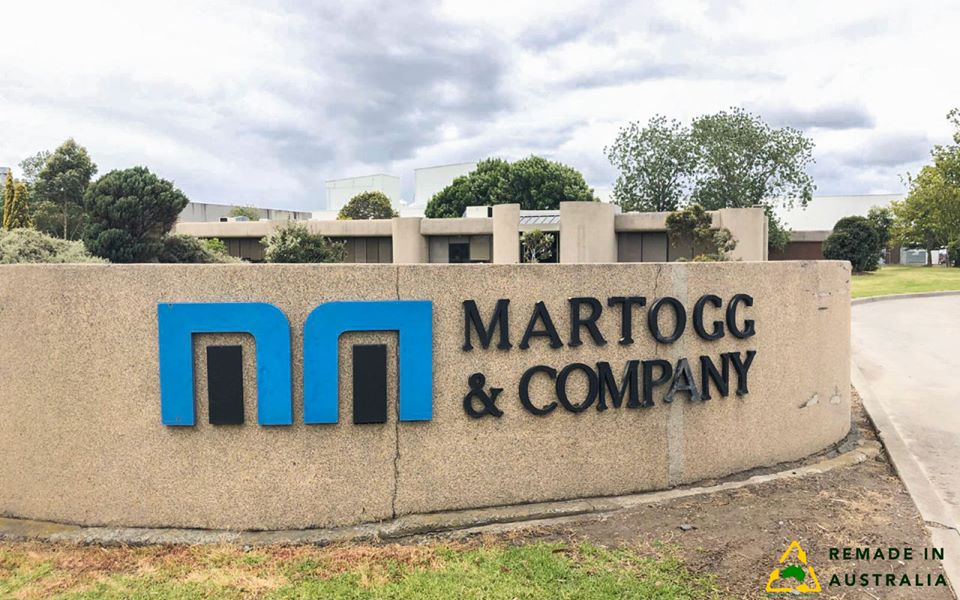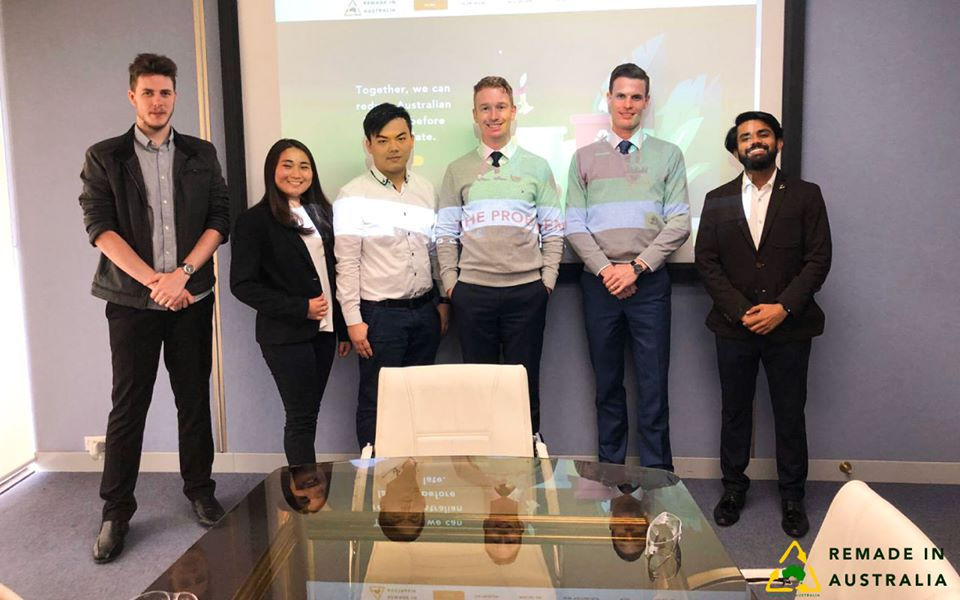What do you get when you combine 40 years of industry experience with a passion for solving a national waste crisis? You get Martogg Group, a Dandenong based recycling company investing heavily in the recycled Australian materials market. Though it’s looking like they’ll need passionate everyday Aussie consumers to push it out there.

Our Visit
On Monday December 2nd, our in house team of representatives ventured to the Dandenong facility to meet face-to-face with Martoggs National Sales Manager - Mitch Lewis.So that day together, we learned that there’s a more to plastic than meets the packaging.
We started our visit with the usual meeting formalities: smiling faces, shaking of hands and a determination to fight a national waste crisis, y’know all the usual things. We were also surprised to learn just how big and particularly noisy the facility was, clearly not just a backyard shed with a small furnace. Of course, what else would you expect from a company with twice the years of existence than I myself have even been alive for.
There we were, powerpoints on screens and glasses of water on desks, ready to talk about how exactly we’re going to hit the landfills where it hurts; when we noticed a test tube looking thing on the sideboard. Turns out, plastic packaging for liquids such as milk, cordial and water bottles, require more thought and design consideration than the average consumer might give them credit for or even stop to think about (we know we were in that boat). The type of plastic actually plays the most pivotal role in how a plastic bottle can or can’t be formed and in particular whether or not it has a convenient handle for those of us with ‘less spacious’ hands. When it comes down to it, there’s really no “one type fits all” plastic, since they each have different melting temperatures and properties, like different metals. So, if ever there was a reason to separate your plastics when recycling next time, think just how much you like handles on your milk and cordial bottles. Thankfully Martogg already have, as they’ve already began producing their latest product: “MarPET”, Martogg’s own recycled PET plastic material.
For those outside of “the know” when it comes to plastic packaging, PET plastics (otherwise known that “1” on the bottom of your bottle) are light, durable and most importantly food grade material, or suited for carrying your food and water without any nasties. An advantage to PET (or Polyethylene terephthalate if you want to get fancy), is that it has a high melting point of around 260°C. This means it can withstand the hotwash process used to sort plastics and otherwise just be easily identifiable at sorting facilities. This really makes it all the more easier to recycle consistently and with a lessor chance of impurity from other debris sneaking in. Martogg are so chuffed and confident in PET moving forward, that they have already began an expansion project at their Dandenong warehouses to add more reactors to push production further. I mean, if an seasoned recycling company is investing in this material, you better believe it’s a valuable product! Moreso valuable to combating the waste crisis considering the raw input can be sourced from household waste and our already overcrowding landfills.

We left with a wealth of knowledge we didn’t have before. It’s amazing what you can learn about something talking to people that eat, sleep and breathe it; rather than the first result of a google search. The Aussie recycling industry is alive, but it’s health is questionable; especially if the message and newer product lines are to fall on deaf ears. As Australians, if we’re going to solve our waste crisis, we’re going to need a strong, expansive industry in our own backyard; but right now, we’re lucky to have one or two garden sheds.

Comments